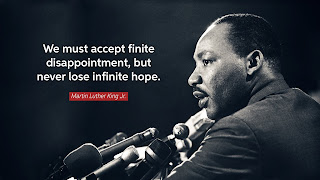Advent 4: Tell the Story
But not everything can or should be explained. In fact, it's when we insist on explaining that we often get into trouble. Sometimes the story should be allowed to speak for itself. Sometimes the story should just be told.
"The only way to speak of what God has done for us in Jesus Christ," argues Stanley Hauerwas in his theological commentary on Matthew, "is to tell the story."
Hauerwas wants us to follow the logic of the story, rather than force the story to fit within the limits of our logic. When we do so, he says, we see that the story requires a virgin birth: "[W]ithout Mary's virginity the story cannot be told." You simply can't tell the story of the Son of God without a virgin birth. So says Hauerwas, at least.
I'm not sure I buy that logic completely, but I do agree completely with the point: Don't insist on explaining everything, just tell the story.
That said, there actually are ways to explain away the virgin birth, if that is a stumbling block for you.
In the gospels, it's clear that Matthew gets his idea of the virgin birth from a prophecy found in Isaiah 7, where the LORD speaks to Ahaz, the idolatrous king of Judah. Isaiah tells Ahaz that the Lord will give him a sign:
The almah (עַלְמָה) is pregnantNow, first, neither Isaiah nor Ahaz would have understood any of this to be about Jesus. This prophecy is, for them, about Hezekiah, son of Ahaz whose religious reforms to purify the Temple and political strength against the Assyrians caused some to see him as the Messiah. In her new book on Advent, the Jewish New Testament scholar, Amy-Jill Levine, reminds us that Matthew is not wrong for seeing a second fulfillment of Isaiah's prophecy. But it's important to look at the original context, for no one would claim that Abijah, Hezekiah's mother, was a virgin.
and is about to give birth to a son,
and she will name him Immanuel.
He will eat butter and honey,
and learn to reject evil and choose good.
Before the boy learns to reject evil and choose good,
the land of the two kings you dread will be abandoned.
Exploring the translation history of the Hebrew word almah (עַלְמָה), which I've left untranslated above, raises some doubts as well. This word is the seed from which the virgin birth sprouts, but the Hebrew doesn't support the idea. There is another word for "virgin" in Hebrew: betulah (בְּתוּלָה). And that word is used about fifty times in scripture. Almah, meanwhile, simply means "young woman."
However, by the 3rd century BCE, most Jews in Palestine didn't speak Hebrew, so their scriptures were translated into Greek in what we know as the Septuagint. This was the Bible used by Matthew. This is the Bible he quotes. And he likely didn't know that the Isaiah text used almah rather than betulah. His text didn't use either of those; his text used the Greek parthenos (παρθένος) instead. And parthenos does indeed mean "virgin," so Matthew is technically not wrong when he quotes Isaiah, though at a deeper level maybe he is.
In sum, there are reasons to question the virgin birth story. In fact, there are reasons within the text itself to question.
But we must ask: Where does any of this get us?
Levine tells us, "There is little reason to argue over who has the correct reading here. Isaiah's words will mean, and should mean, different things to different people over time."
And remember Hauerwas's advice/warning: Just tell the story.
When one tells the story, it becomes clear that the emphasis is not on the virgin birth anyway!
Jewish tradition, says Levine, knows of other miraculous births (e.g., Isaac, Melchizedek, etc.), so that in itself would not be so surprising in the ancient world. It would at the very least be less surprising than it is today.
But the point is less the miracle itself. "There is a sense," says Levine, "rather of the special roles the children would play." And she adds: "For Matthew, the virginal conception is one more indication...that Jesus is the fulfillment of salvation history."
And if we put the emphasis on the miraculous birth, then we miss the point: "And they will call him Emmanuel (God With Us)." The special role Jesus will play is to be God's presence, in the flesh, here on Earth. Matthew reinforces this, says Levine, with the very last line of his gospel: "Look, I myself will be with you every day until the end of this present age."
In sum: Don't let the miraculous distract you, just tell the story.
I'm reminded of the Pedro the Lion song, "Secret of the Easy Yoke," where David Bazan cries out, "Could someone please tell me the story?"



